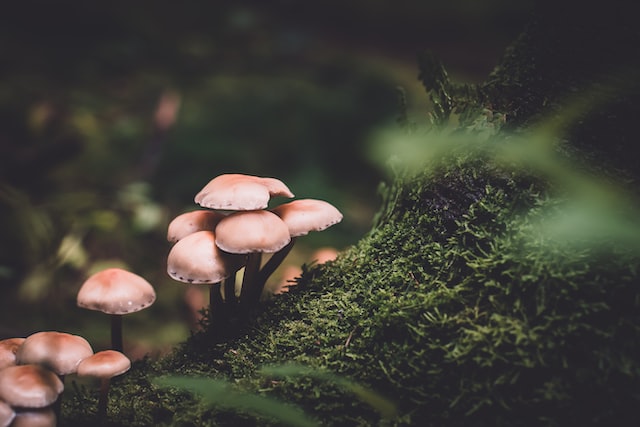Forty million adults have an anxiety disorder in the United States. The usual course of treatment includes medications and therapy, but some find the side effects of anti-anxiety medications to be a sore trade-off. Anxiety is often treated with medications for depression that might cause weight gain or a category of drugs called benzodiazepines (i.e., Xanax). These medications can be addictive, leading to misuse in some cases and increased fall risk in the elderly population. With such distressing side effects, it is no wonder natural remedies consisting of plant compounds are saturating the health foods market. Some of the most popular anti-anxiety plant medicine comes from mushrooms, shrubs, and root compounds.
In general, higher levels of mushroom consumption are associated with lower levels of depression. Certain types of mushrooms, like lion’s mane, have been shown to reduce anxiety in animal and human research. Lion’s mane reduces anxiety by promoting healthy maintenance and connections in the nervous system, increasing circulating anti-anxiety molecules, and improving sleep quality. It is easily accessible and has a long history of improving mood in traditional Chinese medicine.
Ashwagandha, a root originating in the Indian subcontinent, has shown efficacy in stress reduction and relieving anxiety. After about two months of consuming ashwagandha, one experimental group had fewer biological markers of stress and reported no adverse side effects. Ashwagandha consumption also helps people fall asleep faster, stay asleep longer, and have more restorative sleep cycles. Improvements in sleep and reduction in stress make ashwagandha a powerful anti-anxiety plant.
Shrubs such as Siberian ginseng also support a healthy mood. This plant reduces anxiety and chronic fatigue. To even more significant effect, Siberian ginseng helps reduce symptoms of bipolar disorder as much as fluoxetine, a popular bipolar disorder medication, by improving lithium absorption. Unlike fluoxetine, Siberian ginseng has not been associated with increasing mania symptoms. This shrub has multiple mood-boosting benefits.
Overall, mushrooms, roots, and shrubs provide nutritional and mental health benefits with few side effects. However, it is important to note that the breadth of research devoted to plant medicine does not compare to the mountains of research for pharmaceuticals. Lion’s mane, ashwagandha, and ginseng are great additions to psychotherapy but do not replace it. It is also not recommended for people with anxiety to stop their prescribed medications, but supplementation may help with persistent, untreated symptoms. The accessibility and affordability of these plants indicate significant potential for helping people affected by anxiety.



